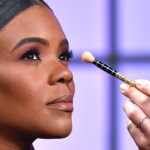“Every single function in the body requires ATP, from opening your eyes to walking to the bathroom to typing on your computer,” she says. As for your workouts, “when you use your muscle cells, particularly during higher-intensity forms of exercise—think weight lifting [or] sprinting—you use those stores of phosphocreatine as a form of ATP.”
In addition to what the body naturally produces, you can get creatine by eating animal products and some seafood.
In supplement form, creatine can be marketed in pills and drinks, but you’ll mostly find it in powder form similar to other popular health supplements like whey protein, or pre–workout.
You expend energy and create micro tears in your muscle fibers during exercise. This is purposeful so that you can recover, rebuild, and regrow afterward, says Holtzer. Supplementing with creatine can help boost that recovery, as it may improve the resynthesis of ATP after exercise. Translation: “The quicker you can make energy, the faster you’re also going to be able to recover,” says Stangland.
Creatine may also play a role in increasing muscle mass or improving muscular growth. Increased creatine in muscle tissues increases something called osmotic pressure, which is “basically the amount of water and pressure that lives within your cells,” explains Holtzer. This pressure causes muscles to swell, which is the catalyst for muscle repair and growth, she explains. So, to clarify, it’s both the swelling itself and the consistent muscle rehab that contribute to increased muscle growth over time.
Yes, creatine is generally safe for most healthy humans including pregnant women, says Holtzer. However, those with kidney or liver disease, or anyone with high blood pressure, should avoid adding creatine, she says. That’s because if these organs have a compromised ability to expel waste (in this case, excess creatine), you may be left with a dangerous amount of unneeded creatine in the blood.
It’s best to check with a primary care physician before starting any new supplement, as a doctor will be able to guide you to the right dosage for your health and goals as well as discuss any contraindications.
Know that “most people create enough within their bodies, and whatever they’re lacking, they get through their diet,” says Holtzer. “So the supplement of creatine is not necessarily essential for all.”
Some people may still benefit from a boost of creatine, namely vegans and vegetarians or those with specific fitness goals, adds Holtzer. Plant-based eaters will still make adequate creatine naturally, but aren’t getting the additive benefits from their diet, she explains.
Athletes, fitness enthusiasts, or anyone training for a high-intensity race or sport may also be interested in the energy and performance boost from creatine, she says. No matter if you take creatine supplements or not, you’ll want to aim for a moderate-carb, low-protein snack ahead of a workout, followed by a high-protein, moderate-carb snack or meal afterward. “Remember, you cannot out-supplement a bad diet,” says Holtzer.
Plus, considering a creatine supplement should be just one piece of your fitness toolkit, says Stangland. “You can’t just eat creatine and hope that you wake up bigger and stronger,” she says. “You need to do the work to see the results that come with it.”
More on supplements:









